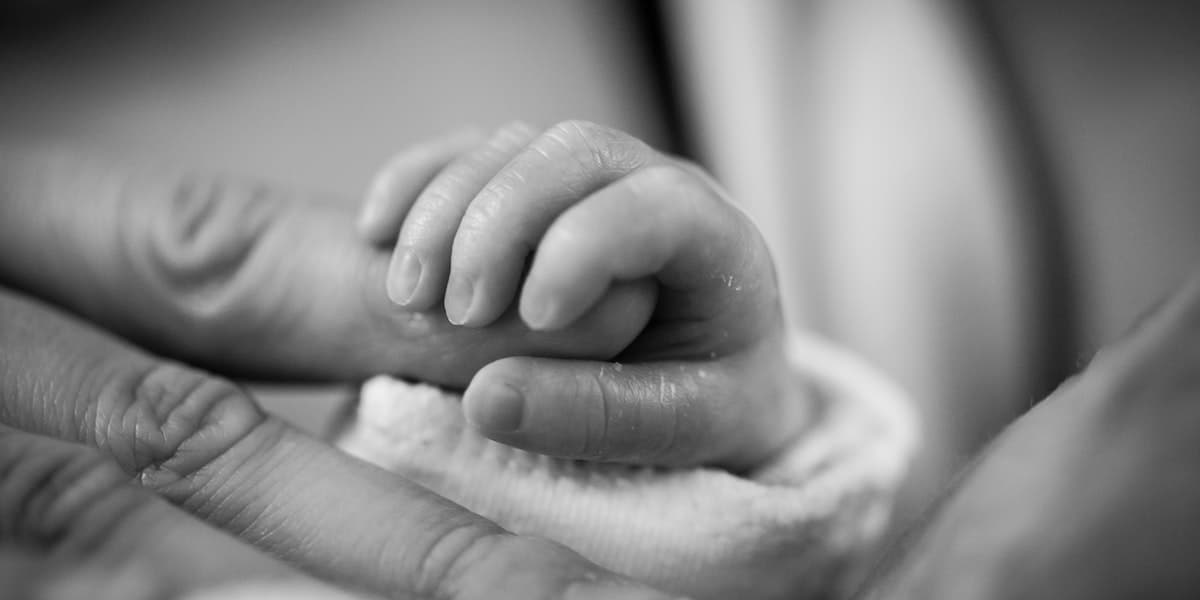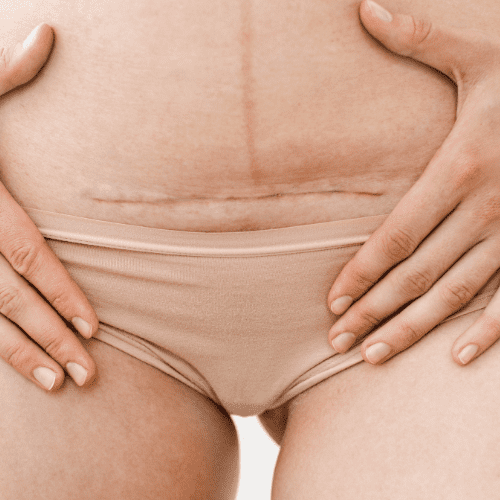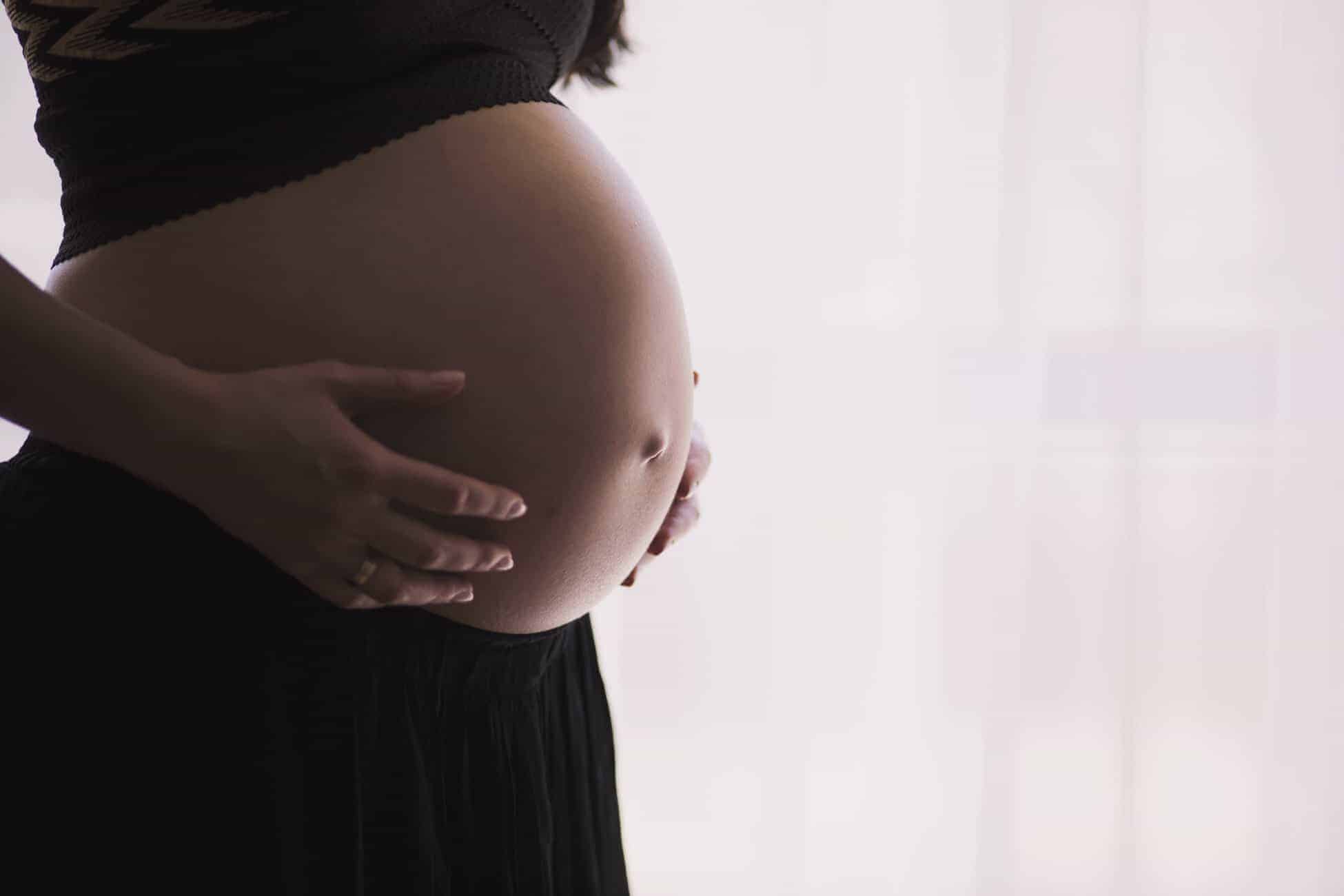Labor can be sometimes confusing. Only 60% of the 651 women polled in a research carried out in Gross et al. corporation thought contractions were the only clues that labor was starting.
If you believe what you see on TV and in movies, commencing contractions is found on the list of the common few indicators that your pregnancy is about to end.
This, along with seeing your water break and thinking you have peed yourself is frequently depicted to us as all you know will happen minutes or hours before your newborn arrives. However, if you’re like most mothers, you’ll notice that other indicators of your body’s preparation for labor are more common when compared to burst waters or contracting.
As an Amazon Associate, I earn from qualifying purchases. The links below maybe affiliate links. Please read my disclosure policy for more information.

What really is labor?
Labor is a process where contractions help the cervix of a pregnant woman to dilate and efface, that is, thin out. The dilation makes it possible for the birth canal to let the fetus through.
Labor often begins either 14 days prior to or after the expected delivery date. The actual cause of labor, on the other hand, remains unknown.
Labor is usually separated into three stages;
This is the first stage: Your cervix will dilate completely when labor begins. If you experience light and irregular contractions at this point, you may not realize you’re in labor.
The 2nd stage of labor is also known as the stage for pushing since it begins when your cervix is fully opened and concludes when your baby is delivered. You become more involved in this stage by pushing the infant out of the birth canal.
When your baby’s head is seen at the vaginal opening, this is known as crowning. For your first pregnancy, the first stage is usually longer than this one as you could need between half an hour and a full hour.
You will enter the third and last stage of labor once your baby is delivered. The placenta (the organ that nourished your baby inside the uterus) is removed from the uterus and passed via the vaginal canal during this stage. The placenta can take up to 30 minutes to deliver.
Here are some other signs you could experience hours before labor, in addition to breaking waters and contractions. Some of these are emotional signals of impending labor, and they’re just as reliable as the physical ones.
Backache
A backache, which can be nagging or severe, is one of the most silent labor indicators. It may not be excruciatingly painful, but you can’t miss it because it was not present previously.
As time passes, it may get worse and could happen anywhere from your upper to lower back. For some women, it may feel like the cramps they get on their period.
Appetite loss
Food may become less attractive to you unexpectedly. This could happen when you’re counting down days to your due date. This could simply be your body’s way of preparing for the birth of your child.
Others believe that moms instinctively sense that labor is approaching and that their worry makes them lose interest in meals.
Diarrhea
This is your body’s interesting manner of preparing for the birth of your baby. Your uterus can contract more effectively when you have emptied your bowels.
Nausea
You may suffer nausea as a result of the general irritation and discomfort around the belly. Your stomach and intestines may be encroached upon as well because the uterus has occupied quite a bit of space owing to your developing baby in the days leading up to labor.
During the first few weeks of pregnancy, bloating and gassiness are frequent. Bloating can be bothersome at times, and the pain can become more intense as the labor progresses.

Fatigue
You could feel substantially less exhausted by the third trimester than what you felt at the start of your pregnancy. That is why this overpowering sense of weariness that comes after a long while is a good indicator that you are ready to begin labor.
You may get so exhausted that you can’t perform daily tasks that you could complete in the weeks before.
Bloody Discharge
This may occur up to days away from labor begins for some pregnant women. It might come as a sign that shows up hours before labor for others.
Mucus that has tinges of brown or pink that shows up when the cervix dilates is called a bloody show.
Cramps
This sign may be one of the most popular ones. What is uncommon about it is that it does not always happen in the lower abdomen. There have been reports of cramps in the back and legs.
Wanting to use the toilet– Bum pressure
The position of your baby’s head may put pressure on your bowels and bladder. For a few hours, you may notice the need to pee in large quantities and a lot more frequently.
This could be a sign that the baby’s head is about to drop. This is what often leads to diarrhea that we have pointed out as another sign of labor.
Becoming restless or irritable
One emotional sign of labor that is often ignored is irritability. You may get the urge to be offended and very irritated in ways you would ignore before.
Sitting still could also become problematic for you. The ability to relax or sleep could suddenly disappear and that could be a sign that labor is close.
Compulsive cleaning and tidying
Nesting is a major sign that the baby is on its way. You start to find things to clean and arrange in the most random places. Your hands are itching to put things in order.
Just before labor begins, you might get the urge to cook food in bulk, put the nursery in order, set up the crib if you haven’t, or just take a vacuum to the entire house.
Contractions
This is one of the more well-known indicators that your body is preparing to give birth. Simply put, contractions are the tightening of the muscles in your uterus.
Your baby is progressively pushed out as your uterus tightens and relaxes. It can cause strong pains in the cervix, which is an indication that labor is about to begin.
All of these things could indicate that labor is about to begin in the next 24 to 48 hours. However, for some women, the actual delivery date may be months away. Yes, you could have labor signs before your due date.
Here are some answers to questions you have about labor and childbirth.
Is it possible for labor to start and stop for days?
It is very possible. Prodromal labor is the term for this type of labor. It’s when labor starts and pauses, causing you to experience contractions but your cervix changing.
Braxton Hicks or fake labor are other terms for the same thing. But don’t be fooled by the term “fake labor.” Prodromal labor feels extremely genuine, and it may last for days or weeks.
Is a 24-hour labor considered long?
Who you direct your question to is the determining factor. After active labor begins, birth should happen before 20 hours is over if contractions are regular.
Other doctors, on the other hand, believe that labor lasting 24 hours is usual. That’s just with one child. Your labor should not exceed 16 hours in length if you have multiples.
Is an early or late birth better for a baby?
Whether the birth happens early or late, which has different interpretations, could be unhealthy for the fetus and mum.
If you’ve been registered with a gynecologist while pregnant and are attending antenatal checkups consistently, it’s unlikely that your baby will be born too early.
You may need to be induced into labor so you and the baby come out safe and healthy. Your doctor is unlikely to let you go past your due date by over 14 days.
If there are no illnesses you know of or no signs of premature birth while you are pregnant, it is more difficult to prevent your baby from being born too soon.
If your baby is born too soon, they may not survive because of the pause in body development.
Premature or preterm birth refers to a child birthed before the 37th week of pregnancy. Some medical professionals believe that birth on the 38th-week mark rather than on the 40th one can cause health issues for the baby.
Aside from taking your prenatal visits seriously, you need to consult your physician if there are concerns or you experience any signs that indicate you may be entering labor early.

Conclusion
If you have already gone through labor and are pregnant again, you will likely trust your intuition and not necessarily depend on outward signals that you are preparing to give birth.
For a first-time mum, know that safe labor looks different for anyone. If you have any reason to be scared, get yourself to a hospital as soon as possible.







